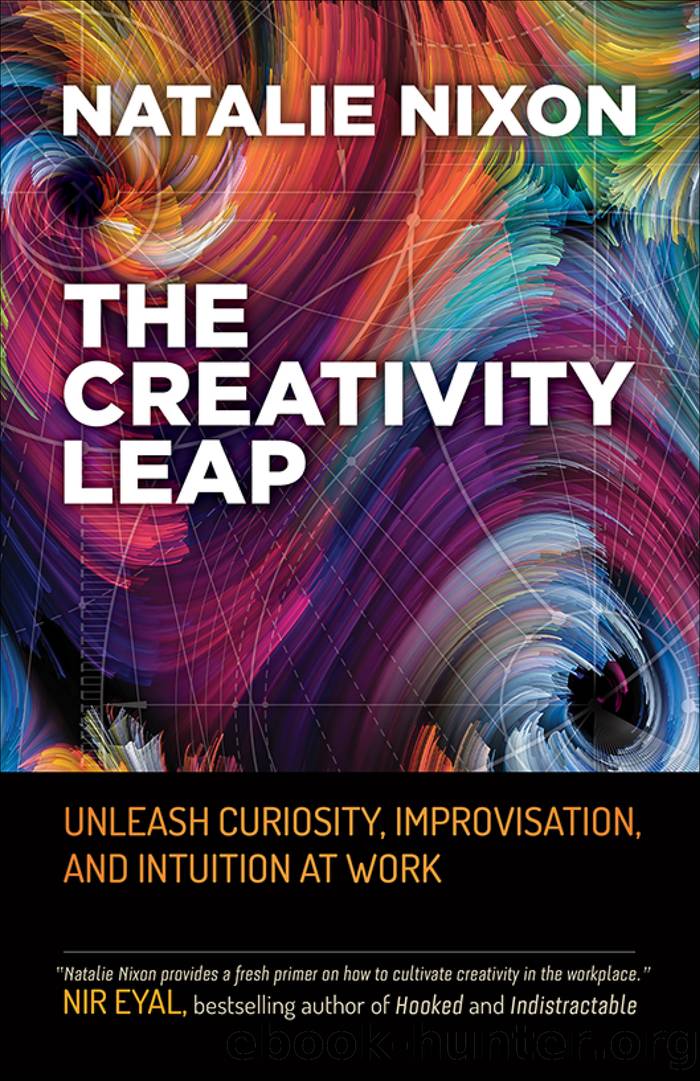The Creativity Leap by Natalie Nixon

Author:Natalie Nixon
Language: eng
Format: epub
Publisher: Berrett-Koehler Publishers
INTUITION AND WICKED PROBLEMS
When the US military entered Afghanistan in 2001, they found the terrain to be volatile, uncertain, complex, and ambiguous (for obvious reasons). Thus was born the acronym VUCA, first coined by the US Army War College in Carlisle, Pennsylvania. Soon thereafter, corporate America began adopting the VUCA term to describe the turbulent market environments that companies have to survive and navigate. We must become comfortable with ambiguity because it is a real and present part of being human.
Ambiguity isn’t going anywhere. Leaders are being required to get more comfortable with abstractions and “unknown unknowns”—that is, not knowing what they don’t know. Markets are imperfect, inconsistent, and unpredictable because they are made of imperfect, inconsistent, and unpredictable people. Wicked problems abound in our VUCA world. They are those complex quandaries such as income disparity, global lack of access to potable water, and terrorism. There are no linear and straightforward answers to these challenges. They are gnarly and ambiguous, and require us to think like systems designers.
A wicked problem is one that requires abductive reasoning, whereby you start with a set of information and try to get to logical, plausible (but not definitive) explanations for those observations. In the abductive process, you have incomplete puzzle pieces—they could be a combination of quantitative data points as well as observations—and then you reach the likeliest conclusion. Physicians do this with diagnoses; they never have a complete picture, just a myriad of data points, such as a consult with the patient, lab reports, and conversations with colleagues.
Claude Silver, the chief heart officer at VaynerMedia, told me that she is a strategic systems thinker who feels her way around the world and operates on gut: “In any given meeting I am using a myriad of tools and inquiry that seem relevant for that situation.” She extends the metaphor of the heart as the central operating system in the body to people being the central operating system in organizations.
In VUCA environments, where data is limited and wicked problems are everywhere, embracing abductive reasoning and your intuition is necessary. In fact, intuition is often how you make the leap from observation to plausible explanation. It begins with the stillness that observation and curiosity require. It leads to clearing out the clutter and bravely following our hearts.
Download
This site does not store any files on its server. We only index and link to content provided by other sites. Please contact the content providers to delete copyright contents if any and email us, we'll remove relevant links or contents immediately.
Hit Refresh by Satya Nadella(8338)
The Compound Effect by Darren Hardy(7562)
Change Your Questions, Change Your Life by Marilee Adams(6641)
Nudge - Improving Decisions about Health, Wealth, and Happiness by Thaler Sunstein(6634)
The Black Swan by Nassim Nicholas Taleb(6192)
Daring Greatly by Brene Brown(5643)
Deep Work by Cal Newport(5471)
Principles: Life and Work by Ray Dalio(5322)
Rich Dad Poor Dad by Robert T. Kiyosaki(5150)
The Myth of the Strong Leader by Archie Brown(4789)
Man-made Catastrophes and Risk Information Concealment by Dmitry Chernov & Didier Sornette(4738)
Big Magic: Creative Living Beyond Fear by Elizabeth Gilbert(4723)
The Slight Edge by Jeff Olson(4722)
Discipline Equals Freedom by Jocko Willink(4638)
Digital Minimalism by Cal Newport;(4545)
The Motivation Myth by Jeff Haden(4528)
Stone's Rules by Roger Stone(4417)
Management Strategies for the Cloud Revolution: How Cloud Computing Is Transforming Business and Why You Can't Afford to Be Left Behind by Charles Babcock(4131)
The Doodle Revolution by Sunni Brown(4043)
